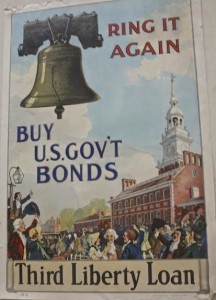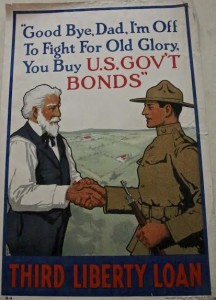The Tragedy of the Patriot’s Children
A few weeks ago, I received an email from old friend Tim Bardwell, who is writing a multi-volume history of the Bardwell family. He is currently finishing his chapter covering the years 1770 – 1800, and investigating the intermarriage of the Belchertown Bardwells with the Cowles and Howe families. Tim wrote me regarding a posting he had found on the Find-A-Grave website about a Cowles family member living in Belchertown during the American Revolution. This post states the following:
During the war, while Moses [Cowles] was away, his three daughters were burned in his home by Torries [sic]. Upon hearing the news he requested leave and received a release signed by General George Washington. His wife, bearing child, died a few months later.
Maria (Cowles) Hand recalls “I have frequently heard them tell over the sad story while tears ran down their cheeks & we children could not help crying too. Never were brothers more family united in Christian bonds than were these two [brothers] -– Moses & Asa. Their hopes, their aims, their fears were one.”
Tim was checking to see if there might be any evidence in our Stone House archives concerning this tragic fire and an alleged “release” signed by General George Washington. He had cross-checked three different secondary sources which reference the fire and none of them mentioned either Tories or a Washington-approved special leave. Lack of corroboration by any other historical source naturally provoked some skepticism on Tim’s part with his observation that the account on Find-A-Grave: “as emotionally compelling as it certainly is, seems more probably a patriotic embroidery applied to a tragic historical fact.”
Moses Cowles was born in 1743 in Belchertown. Moses married his first wife, Ama (or Amy) Parsons, daughter of Nathan and Amy (Gould) Parsons, on 18 October 1770. Both of them were members of the Congregational church in Belchertown.
Sadly, the tragedy really happened. Three children of Moses & Ama Cowles are all listed in our town’s vital records as having died on the same day: 26 October 1776 (Corbin Collection, Vol. 1). This is confirmed by the children’s gravestone which adds that they were “all burnt in a house Oct. ye 26 1776.” Ama Cowles was pregnant at the time of the fire and she herself died in childbirth a few months later on 22 January 1777. The baby was stillborn and the mother died a number of hours later. Along with her four children, she is buried in Belchertown’s South Cemetery.
Regarding the cause of the fire, Tim remained skeptical of placing blame on Tories.
He points out that the three other secondary sources that he checked all reference the same tragic event, but none of them indicates Tory involvement or a leave of absence granted by General Washington. Could we find a contemporaneous source and would it mention anything about Tories?
Dr. Estes Howe, one of Belchertown’s important figures and a Revolutionary War physician, kept a pair of journals of his activities during the war and notes about many of the soldiers he treated. Checking his journals, I found that Moses Cowles is listed with eleven other names with the notation: “New Yorke Men, Sept. ‘76” and “Each one of these did a turne of Two Month. to York.”
Howe, as doctor was stationed in Peekskill, New York at some point during his service. Does the reference “to New Yorke” mean that these men were sent to New York State in their service? Or was it referring to their origin, as being from New York? This remains unclear. What is clear, however, is that Moses Cowles, who was born in Belchertown and certainly resided here, was in the army at the time of his children’s death. In fact, the dates for the fire strongly suggest that Moses, along with most of the able-bodied militiamen of Belchertown at that time (Sept.-Oct. 1777) were off fighting Burgoyne at Bennington and Saratoga.
The archives also have the records of the Congregational Church from that period. The record of deaths for 26 October 1776 notes the sad event:
Three Children of Moses and Amy Cowls – all Daughters, the Eldest perhaps 5, the youngest 1 year & half, were burnt to Death in the House of their Father, which took fire and consumed in the Day time, while their Mother had been gone out but a short time – their Father in the Army.
A later entry in the church death records for 22 January 1777 states:
Amy the wife of Moses Cowls. She never appeared well after their House & Children was burnt. But probably took cold after Ointing for the Itch. Her travail came on – the Child Stillborn and she survived but about 2 hours.
In a personal note, town pastor Rev. Justus Forward, in whose hand the record of deaths is compiled, had this to add:
Amy the Wife of Moses Cowls and only daughter of Nathan Parsons died. She had perhaps Black Jaundice ointed for itch was taken delerious it brought on her trevail prematurely. The child was stillborn. She survived but about 2 hours. Their house and 3 children, all they had was burnt Oct. 26 see above — the poor man is striped [sic] and left alone. May the Father of mercies comfort and support him.
So here we have a fourth source (perhaps the most authoritative of them all), which makes no mention of Tories. Is this a case of family tradition encumbered with “patriotic embroidery” or a factually correct account that just needs more corroboration? Perhaps more investigation is needed before rendering a final judgment on the matter; until then, let the reader decide!
After such a tragedy, it’s no surprise to see Moses Cowles moving to Canaan, NY and then later to New Lebanon, NY, where his brother Asa purchased an adjoining farm to his. Moses started over by marrying for a second time Phebe Alexander, by whom he had four more children. Moses Cowles lived until just shy of his 90th birthday.
* * * * *



